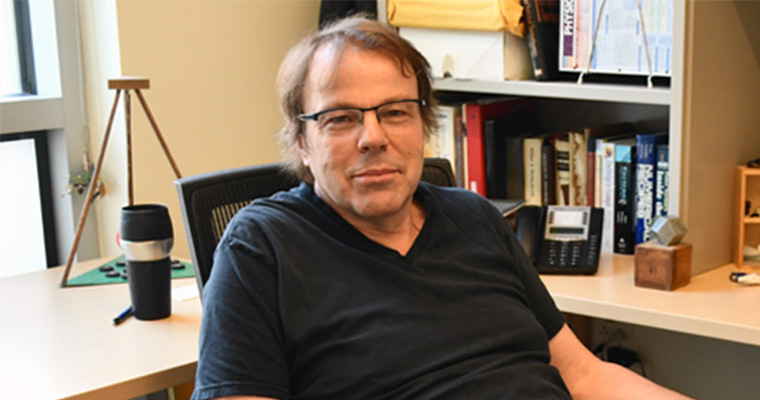- Home
- News
- Recent News
- Physicist Receives NSF Grant to Use Quantum Mechan
Physicist Receives NSF Grant to Use Quantum Mechanics to Study Number Theory
Department of Physics Professor Maxim Olchanyi has been awarded a $212,358 three-year grant from the National Science Foundation (NSF) for a project entitled Number-Theory-Inspired Effects in Cold Atoms. The study is one of only a few attempts in the world to use quantum mechanics to study number theory.

Number theory is a branch of mathematics that looks at the relationships and properties of integer numbers. It is a theoretical foundation of cryptography, including the ubiquitous RSA encryption algorithm.
The primary goal of Olchanyi’s project is to build a quantum machine that will provide new tests of the validity of the Goldbach Conjecture, a well-known, but yet-to-be-solved problem in number theory. The Goldbach Conjecture states that for any even number, the sum of at least one pair of prime numbers equals that even number (e.g., 12=7+5, 40=3+37, etc.). Although the correctness of the conjecture has been confirmed for relatively small numbers (less than approximately 4. x 1018), Olchanyi’s research is exploring ways quantum mechanics can push this limit even further.
Olchanyi’s group at UMass Boston will run the project in close collaboration with Oleksandr Marchukov of Technische Universität Darmstadt in Germany, and Donatella Cassettari’s experimental group at the University of St. Andrews in Scotland.
Explaining the methods that will be used for the study, Olchanyi said, “At this early stage, we are not planning to employ the massive parallelism offered by quantum mechanics. As far as the quantum properties are concerned, we will only use the fact that in the quantum world, the energy of a particle assumes discrete values. These discrete values will be associated with prime numbers.”
Olchanyi continued, “An additional laser light will induce arithmetic progressions among sums of these numbers, one atom per term. A trap for atoms whose energy spectrum is proportional to prime numbers exists already. Cassettari’s group, one of our collaborators, created it a year ago, and we will continue to build on this work.”
The NSF funding will be used for salaries for the UMass Boston graduate students working on the project.
